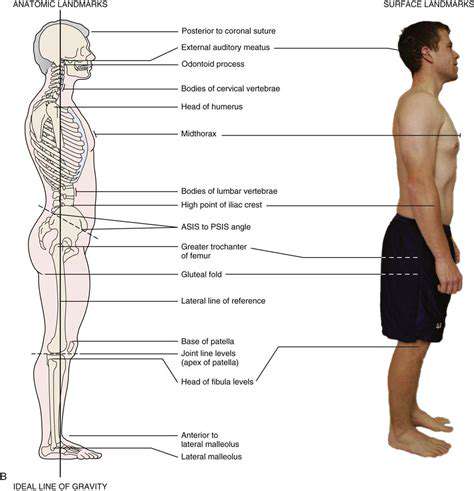Guide to Adopting a Pet from a Foreign Country (Complexities)
Understanding International Pet Adoption Laws
When considering cross-border pet adoption, prospective owners must navigate a labyrinth of ever-changing regulations. What many fail to realize is that these rules can differ not just between countries, but sometimes between provinces or states within the same nation. The paperwork jungle includes everything from health certificates to import permits, with some nations requiring extensive quarantine periods while others demand specific vaccinations months in advance.
I've seen cases where well-meaning adopters faced heartbreaking setbacks because they didn't account for seasonal changes in import policies. One couple I advised nearly lost their adopted greyhound because they missed a crucial rabies titer test deadline. This underscores why consulting with both countries' agricultural departments months before adoption is non-negotiable.
Essential Documentation for International Pet Adoption
The paper trail for international pet transfers would make a corporate lawyer's head spin. Beyond the standard vaccination records, many countries now require ISO-compliant microchips, USDA-stamped health certificates, and sometimes even bloodwork proving disease-free status. What's often overlooked is that some documents have shockingly short validity periods - sometimes as brief as 10 days before travel.
From personal experience helping with overseas rescues, I can't stress enough the importance of certified translations. A shelter in Spain once provided perfect Spanish documentation, but German authorities rejected it because the translation wasn't done by their approved list of translators. These bureaucratic nuances can make or break an adoption.
Quarantine and Health Check-ups
The quarantine experience varies wildly depending on destination. While Australia maintains strict 10-day facilities, some European countries allow home quarantine with GPS-tracked collars. What most adoption websites don't mention is the psychological impact quarantine can have on already stressed animals. I've worked with pets who developed severe anxiety after prolonged isolation.
During mandatory stays, animals undergo more thorough exams than most humans get annually. Japanese quarantine officers, for instance, perform full dental inspections looking for signs of certain diseases. This intense scrutiny, while stressful, ultimately protects both the pet and local ecosystems from foreign pathogens.
Transportation and Travel Arrangements
Choosing a pet transporter requires more vetting than selecting a heart surgeon. The difference between reputable companies and shady operators often comes down to climate-controlled vehicles and staff trained in animal CPR. One critical detail most overlook: flight connections. I've seen pets miss crucial layovers because their paperwork wasn't active during transit stops.
The container requirements alone could fill a manual - from bolt types to ventilation hole placement. A client's Persian cat was nearly refused boarding because her carrier had quarter-inch holes instead of the required half-inch spacing. These minutiae matter tremendously when lives are at stake.
Financial Implications of International Pet Adoption
The price tag shocks many first-time international adopters. Beyond obvious costs like flights and vet visits, there are often surprise fees like live animal handling charges at customs. One adopter I counseled was blindsided by a $800 biosecurity levy upon landing in New Zealand. These hidden expenses can easily double initial estimates.
Budgeting requires anticipating the unpredictable. A rescue dog I helped import from Thailand developed kennel cough mid-flight, resulting in $3,000 in emergency vet bills upon arrival. Smart adopters maintain an emergency fund equal to at least 30% of projected costs.
Finding Reputable Adoption Agencies
Vetting overseas agencies demands detective-level scrutiny. Beyond checking registrations, I always recommend requesting unedited video tours of their facilities. The red flags are often in what they won't show you - like where animals sleep or how staff interact during unannounced visits. One rescue I investigated had beautiful website photos but kept dogs in deplorable conditions off-camera.
True professionals welcome tough questions about their euthanasia policies, vet partnerships, and adoption failure rates. If an organization hesitates to provide references from past international adopters, walk away immediately.
Ethical Considerations in Cross-Border Adoption
The moral dimensions extend far beyond paperwork. I've witnessed cases where rescue operations essentially created demand by purchasing puppies from mills to fulfill adoption requests. One heartbreaking trend involves breeders disguising puppy mill operations as rescue shelters to bypass import restrictions. Ethical adopters must consider whether their actions might inadvertently support such practices.
There's also the carbon footprint question - is flying a pet halfway around the world truly humane when local shelters overflow? These aren't comfortable questions, but responsible adoption demands we ask them.
Legal and Regulatory Requirements: A Country-Specific Overview
International Adoption Laws: A Global Perspective
Cross-border adoption regulations reflect deep cultural differences in how societies view animal welfare. Scandinavian countries, for instance, require prospective owners to complete mandatory pet parenting courses. Meanwhile, some Middle Eastern nations still classify certain breeds as dangerous regardless of individual temperament. The most surprising variation I've encountered? Iceland's complete ban on reptile imports to protect their fragile ecosystem.
These laws evolve constantly. When Britain left the EU, their pet passport system underwent 17 revisions in the first year alone. Staying current requires monitoring government websites monthly, as printed guides often contain outdated information.
Domestic Adoption Procedures: National Variations
Even within federal systems, local quirks abound. In the U.S., Hawaii's rabies-free status creates unique hurdles, while Alaska has special provisions for sled dogs. One obscure Tennessee regulation requires extra documentation for any pet crossing county lines that's ever bitten someone - even in self-defense decades prior. These hyper-local rules trip up even experienced transporters.
The paperwork processing times vary just as dramatically. While Germany's efficient system clears most pets in 48 hours, Brazilian bureaucracy can hold up documents for weeks during Carnival season. Smart adopters build in at least 50% extra time beyond official estimates.
Ethical Considerations in Adoption
The moral calculus extends beyond legal compliance. I counsel adopters to consider whether removing animals from developing nations might deplete local shelter resources. In one controversial case, well-meaning Europeans rescued so many Romanian street dogs that the country's rodent control suffered. There's also the question of whether international adoption encourages irresponsible local breeding when demand outstrips supply.
Transparency remains the ethical gold standard. Reputable organizations willingly disclose their full operational costs, including what percentage goes to actual animal care versus administrative overhead.
Specific Regulatory Compliance for Adoptive Agencies
The oversight of international pet adoption agencies would surprise most people. In Switzerland, they undergo annual audits comparable to financial institutions. Meanwhile, some Asian countries have virtually no oversight beyond basic business licensing. This regulatory patchwork creates opportunities for unethical operators to shop for the most lenient jurisdictions.
Accreditation matters tremendously. Look for agencies endorsed by the International Pet and Animal Transportation Association or similar bodies. Their certification processes involve unannounced inspections and strict documentation reviews that weed out bad actors.

When transporting pets internationally, the physical logistics present unexpected challenges. I've seen temperature-controlled pet cabins fail during tarmac delays, requiring emergency interventions. These real-world variables rarely appear in agency brochures but make all the difference in safe transport.
Financial Implications and Costs Associated with International Pet Adoption
Financial Considerations for International Pet Adoption
The financial reality often shocks first-time adopters. Beyond the obvious (flights, crates), there are hidden costs like agricultural inspection fees that can exceed $500 at some ports. One client was stunned by a $1,200 dangerous breed surcharge for their perfectly behaved pit bull mix when landing in Dubai. These unpredictable expenses demand flexible budgeting.
Currency fluctuations add another layer of complexity. When the British pound dropped sharply in 2016, several adoptions fell through because suddenly the Euro-denominated quarantine fees became unaffordable. Wise adopters hedge against such risks.
International Pet Adoption Costs: A Breakdown
The true cost breakdown reveals surprising line items. That required rabies titer test? It's not just the $150 lab fee - you'll pay $400 for the special USDA-approved vet to draw the blood. Then there's the unaccompanied minor fee some airlines charge for pets traveling alone - often more than a human ticket! These nickel-and-dime charges accumulate frighteningly fast.
Customs brokers represent another often-overlooked expense. While some countries let you self-clear, others mandate licensed brokers whose fees start at $300. And heaven help you if paperwork errors require overnight document couriers - I've seen those bills exceed $1,000.
Logistics and Practical Considerations: Making the Journey Seamless
Choosing the Right Adoption Agency
Selecting an agency requires forensic-level due diligence. Beyond checking licenses, I recommend visiting in person if possible. A red flag I've learned to spot: agencies that refuse unannounced visits or claim their facility is under renovation indefinitely. The best organizations proudly showcase their operations anytime.
Payment structures reveal much about an agency's ethics. Be wary of those demanding full payment upfront or offering suspiciously low all-inclusive rates. Reputable agencies typically use escrow accounts and stage payments tied to concrete milestones.
Financial Planning for Adoption
Smart budgeting requires anticipating the unpredictable. I advise clients to allocate funds for: emergency vet care during transit (minimum $2,000), unexpected quarantine extensions (calculate daily rates x 14 extra days), and potential fines for paperwork errors (research maximum penalties for your route). One couple I worked with avoided financial ruin only because they'd budgeted for the 22% temporary import tax Brazil imposes on certain breeds.
Navigating the Legal and Regulatory Landscape
The legal maze changes constantly. When COVID hit, some countries temporarily banned all pet imports, stranding adopted animals overseas. I now recommend adopters purchase specialized insurance covering regulatory abandonment - a little-known policy that saved one client $15,000 when new breed restrictions emerged mid-process.
Time zones become crucial when coordinating international paperwork. Missing a notary's cutoff in Sydney can delay everything by days. Successful adopters maintain a global clock app and know exactly when offices open in every relevant jurisdiction.
Preparing for the Emotional Journey
The emotional rollercoaster is often underestimated. I've seen adopters develop severe anxiety from the uncertainty, while others experience guilt over buying a foreign pet when local shelters are full. One client suffered PTSD after her adopted dog spent three unexpected weeks in quarantine due to a paperwork error. These psychological impacts demand preparation.
Building a Supportive Network
Creating a robust support system is paramount. Beyond vet references, I urge adopters to connect with: a 24/7 emergency vet at their destination, a pet-friendly hotel chain along their route, and local expat groups who've completed similar adoptions. When a client's flight was diverted to Mumbai, it was an expat Facebook group that found an emergency foster for her terrified cat overnight. These networks prove invaluable during crises.
Read more about Guide to Adopting a Pet from a Foreign Country (Complexities)
Hot Recommendations
- Review: [Specific Brand] Small Animal Cage
- Why Rescuing Pets Saves Lives
- Best Pet First Aid Kits [What to Include]
- How to Help Stray Animals in Your Community
- Guide to Adopting a Pet When You Have Kids
- Top Reptile Heat Lamps
- Heartwarming Rescue Stories That Will Inspire You
- Review: [Specific Brand] Bird Cage
- Best Aquarium Filters [2025 Review]
- Review: [Specific Brand] Smart Litter Box
